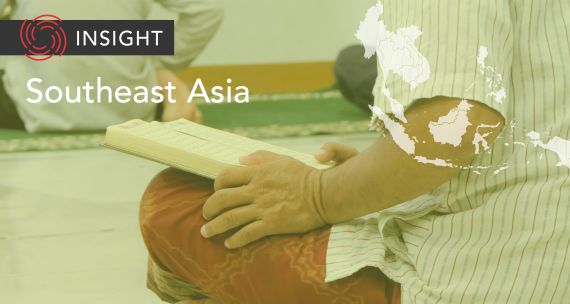The Takeway
The initial approval of Japan’s first oral abortion pill by an expert panel under the Ministry of Health, Labour and Welfare is paving the way for the country to improve its traditional attitude towards women’s reproductive rights. The advancement of women’s rights still faces systemic challenges in Japan’s male‑dominated society, but the approval of an abortion pill is celebrated as a small step towards expanding women’s rights.
In Brief
On January 27, an expert panel under Japan’s Ministry of Health, Labour and Welfare (MHLW) gave its initial approval for the manufacturing and marketing of the country’s first oral abortion pill. In December 2021, British pharmaceutical company LinePharma applied for approval for its oral abortion pill, which can be used during the first nine weeks of pregnancy. The pill will be marketed under the name Mefeego in Japan and will consist of two pills: mifepristone and misoprostol.
Japan became one of the first countries to allow abortions with certain conditions under the Eugenics Protection Law of 1948, which sought to prevent “inferior births” rather than protect women’s reproductive rights. In 1996, it was updated and became the Maternal Health Protection Law; however, traditional elements remain, such as the requirement for women to gain permission from a male spouse or partner.
Currently, Japan is one of 11 countries in the world that requires third-party consent — with few exceptions — to undergo an abortion. Abortion is permitted up to 22 weeks and only two methods of surgical abortions are available, which are both invasive and expensive, costing on average between C$1,024 (100,000 yen) and C$2,050 (200,000 yen).
While medical abortion, like surgical abortion, will likely not be covered by Japan’s public health insurance, the MHLW panel’s endorsement of medical abortion marks a historic step toward enhancing women’s reproductive rights in Japan. The government is currently conducting public consultations to gain the public’s perspectives on this contentious topic. Following the consultations, the MHLW advisory council is expected to discuss the proposal before Japan’s health minister decides in March.
Implications
Japan has long received criticism from international bodies like the WHO and the UN, which have called on Japan to abolish the spousal consent requirement and stop the “outdated” curettage method of surgical abortion.
The country has been slow in approving women’s reproductive health medications such as contraceptive pills, which were only approved in 1999. The pill continues to have extremely low usage due to age limits tacitly placed on prescribing the pill and the negative social repercussions of using the pill. According to a 2019 UN survey on contraceptive use by method, only 2.9 per cent of Japanese women use the pill, compared to 28.5 per cent in Canada.
Similarly, emergency contraception, or the morning after pill, has only been available in Japan since 2011 and requires a doctor’s prescription, making it a risky option given the short timeframe for its effectiveness. In 2020, the government announced that it would consider easing regulations, but it only completed the public consultation process for over-the-counter emergency contraception on January 31.
With limited access to reproductive technologies and services, some women resort to leaving newborns in anonymous hospital “baby hatches” and, in rare cases, even infanticide. Despite local activist movements aiming to increase women’s options, many in the medical field continue to oppose easing regulations. For example, medical experts from the Japan Association of Obstetricians and Gynecologists argued that “women seeking emergency contraceptives . . . may be involved in the sex industry or a criminal organization who might transfer the drugs to others.”
Japan’s deeply patriarchal society maintains strict ideas on gender roles and public opinion on abortion remains stigmatized. The debate is generally apolitical and not religiously motivated, but women who seek abortions are often seen as not living up to societal expectations. Combined with the demographic issues of Japan’s rapidly declining population, some politicians proposed banning abortion in 2013 to increase birthrates. However, Japan’s move towards approving oral abortion pills has been celebrated as a small step
What's Next
- Abortion pill domino effect
Japan’s imminent approval of its first oral abortion pill could set a precedent for other countries in the region. Hyundai Pharm, which has an exclusive contract with LinePharma, applied for approval in South Korea before Japan but the proposal was stuck “in review” for over a year. In December 2022, Hyundai Pharm announced it would reapply for a permit.
- Telemedicine expanding access to women’s reproductive medicine
In January, the Japanese government introduced an electronic prescription service, which could increase telemedicine throughout Japan. Through the new service, women can have easier access to reproductive medicine such as emergency contraception and the birth control pill.
- Growing momentum in expanding reproductive rights
Increased civic activism to increase women’s options for contraception illustrates discontent among many women who experience the burden of Japan’s restrictive regulations. Within the G7 and other multilateral forums, Japan regularly ranks significantly lower in gender policies. As the Japanese government sets its sights on increasing its diplomatic power in 2023, the international community could increase pressure on the country.
• Produced by CAST’s Northeast Asia team: Dr. Scott Harrison (Senior Program Manager); Momo Sakudo (Analyst); Tae Yeon Eom (Analyst); and Sue Jeong (Analyst).




